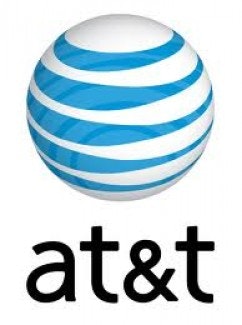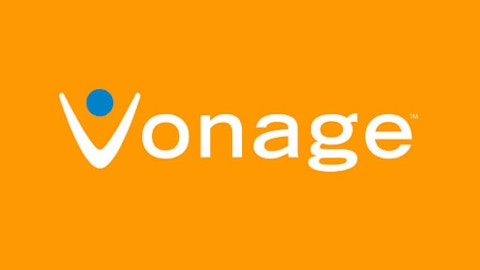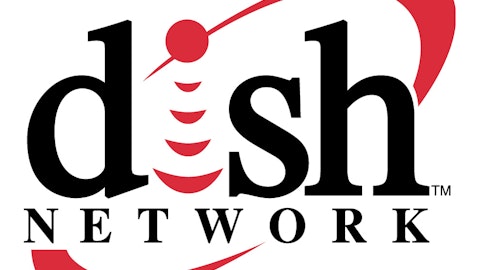AT&T Inc. (NYSE:T) is a bellwether within the US economy, given its ties to both consumers and business spending. AT&T Inc. (NYSE:T)’s earnings report will give us a glimpse into what consumers value and how these companies will continue to evolve and drive revenue growth in a market where smartphones are starting to become saturated.
Further stock repurchases
In an environment of record low interest rates, AT&T Inc. (NYSE:T)’s common stock has been a safe haven for yield-hungry investors. The telecom giant is in a mature industry and pays out a mouth-watering dividend of 5.2% by paying out 53% of its free cash flow. AT&T Inc. (NYSE:T) also took advantage of the low interest rates, and issued debt near 2%, as well as its free cash flow, to repurchase its higher-yielding common stock.
In 2012, AT&T Inc. (NYSE:T) repurchased 5% of its shares outstanding and saved the company over $770 million per year. AT&T Inc. (NYSE:T) can now use the money saved to further reduce share count, retire debt or fund its pension plan. On the company’s earnings call, listen to see if the telecom giant is continuing this arbitrage opportunity.
AT&T has been the only major US telecom to repurchase more than 2% of its shares.
Consolidation in the industry
The telecommunications industry has seen an essential duopoly in the US with AT&T and Verizon Communications Inc. (NYSE:VZ). The number-three integrated mobile-phone operator, Sprint Nextel Corporation (NYSE:S), is now pursuing a merger with the Japanese firm Softbank. This opportunity will give Sprint Nextel Corporation (NYSE:S) a much-needed capital infusion that it can use to roll out its 4G network and compete against its bigger brothers.
The new Sprint will could pose a problem for both Verizon Communications Inc. (NYSE:VZ) and AT&T if it is able to compete on price and service with the two largest networks.
Churn and subsidies
The number of customers that AT&T loses in an average year is its churn rate. Ma Bell and Verizon have been stable at around 1.2% of customers per year, and both are trying different techniques to reduce this churn further. Both companies have been trying to retain customers by offering them upgraded phones at 18 months instead of the standard 24 months.
They have also been trying to make their products stickier by bundling land lines, Internet, TV and mobile phone bills into a single statement that can be setup for auto-pay. This auto-billing system lets their customers maintain service without having to write out a check every month.
Verizon executives recently said that they think the company will be able to slash its subsidies expense as smartphone costs continue to decline. Verizon CEO Lowell McAdams is even looking into ending subsidies and moving to the model most non-US telecommunication companies use. This is the model that T-mobile has implemented in the past few quarters and it could increase the number of customers leaving Ma Bell.
If we see an large uptick on the customer churn number, we will see increases in retention expenses in the months to follow, leaving less money for shareholders.
International opportunities
Earlier this week, Telefonica rose on speculation that AT&T showed interest in purchasing the telecom giant. The Spanish telecom company, which holds most of its assets in Europe and Latin America, denied such rumors. However, this raises a question regarding AT&T’s focus on growth worldwide. Can Ma Bell keep focusing mostly on the US for revenue?
Vodafone Group Plc (ADR) (NASDAQ:VOD) has a presence in over 70 countries and services over 439 million consumers around the world. This vast reach helps Vodafone Group Plc (ADR) (NASDAQ:VOD) hedge geographical economic ebbs and flows. Even though the company is based in Europe, it holds a minority stake in Verizon Wireless in the US and a 10% stake in China Mobile, as well as cable and Internet services worldwide.
As Verizon tries to work out a deal with Vodafone to purchase the 45% of Verizon Wireless that it doesn’t already own, the two can’t seem to come up with a common price. Verizon is valuing the business at nearly $100 billion, but Vodafone sees the price nearly 20% higher. As the final number gets worked out, Vodafone is busy expanding into the cable distribution market on its quest to offer comprehensive communications and data solutions to its customers.
Vodafone just placed a bid to purchase Kabel Deutschland for $9.6 billion. This would give Vodafone a better way to bundle its services in Germany, Europe’s largest consumer market. This is the same move that DISH Network Corp (NASDAQ:DISH) tried to make when it attempted to purchase Sprint earlier this year.
If rumors are confirmed and AT&T is looking to buy another international carrier, we could see a short-term hit to earnings as AT&T digests another carrier. This would, however, give AT&T more clout with multi-national companies on the corporate-service side to win more contracts.
Foolish bottom line
AT&T is as mature and stable a company as they come. It provides the networks we communicate on, and will continue to do so into the foreseeable future. With a dividend of 5.2% AT&T will continue to be one of the best stocks to hold as an income investor, and a dip in the stock price should bee seen as an opportunity to purchase more.
Want to get in on the smartphone phenomenon? Truth be told, one company sits at the crossroads of smartphone technology as we know it. It’s not Nokia… or Verizon… or even Apple! In fact, you’ve probably never even heard of it! But it stands to reap massive profits NO MATTER WHO ultimately wins the smartphone war.
The article What to Listen for During AT&T’s Earnings Call originally appeared on Fool.com.
Wes Patoka owns shares of AT&T and Verizon Communications. The Motley Fool recommends Vodafone. Wes is a member of The Motley Fool Blog Network — entries represent the personal opinion of the blogger and are not formally edited.
Copyright © 1995 – 2013 The Motley Fool, LLC. All rights reserved. The Motley Fool has a disclosure policy.






